Small Manufacturer: Industry Needs Tax Consistency
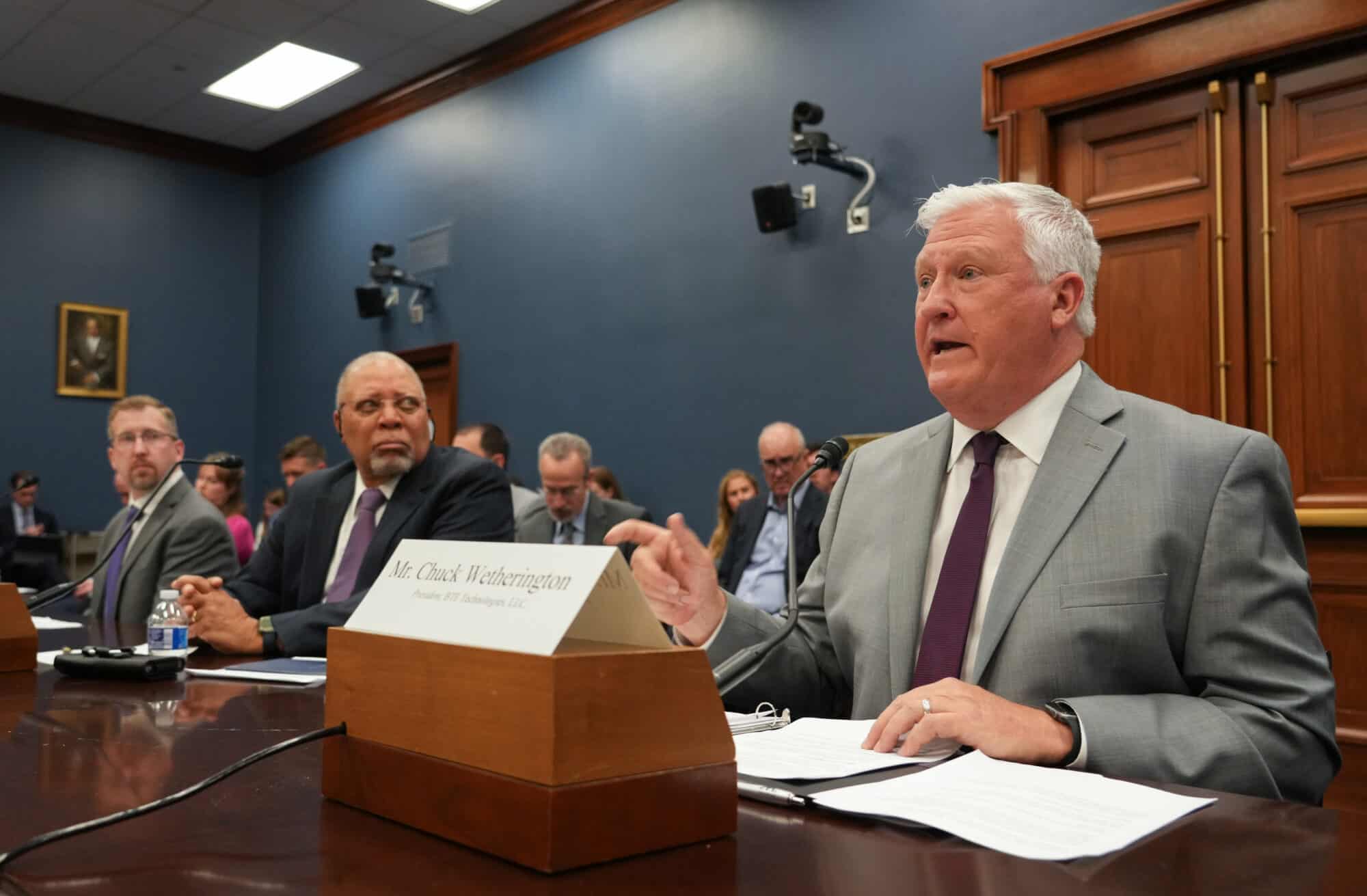
Small manufacturers need one thing from Congress, BTE Technologies President Chuck Wetherington told lawmakers on Wednesday: a consistent, pro-growth tax code.
What’s going on: Speaking at a hearing of the House Committee on Small Business, Wetherington told lawmakers how increased taxes and frequent changes to the tax code have harmed his company, a 40-employee medical device manufacturer in Hanover, Maryland.
- By passing the 2017 Tax Cuts and Jobs Act, “Congress was able to take a stale, outdated tax code and update key provisions to reduce taxes on small manufacturers,” Wetherington said. That legislation “drove a new wave of economic activity and industrial expansion. BTE, and many of our peers in the industry, experienced historic growth in the years between tax reform and the pandemic.”
- But the expiration in 2022 and 2023 of three crucial tax provisions—immediate expensing for domestic R&D, enhanced interest deductibility and full expensing, each of which the NAM is leading the charge to reinstate—is now hurting BTE and other businesses in its supply chain.
- And more tax hikes are on the horizon, with tax reform’s small business incentives—including the 20% pass-through deduction—set to expire at the end of 2025.
Less capital, fewer projects: “Bringing a medical device to market is extremely risky and takes years and millions of dollars of investment,” Wetherington continued. “But now, BTE cannot immediately expense those costs—reducing the working capital I have available to invest in my business and my employees … [and] delay[ing] projects to redesign and improve BTE’s flagship products.”
- As a direct result of the changes, BTE has had to put off expansions that would have allowed it to expand its workforce by 50%.
- And because most of BTE’s suppliers are pass-through businesses (entities in which profits pass through to the owner and are taxed at the individual rate), BTE will see even higher operating costs at the end of 2025, when tax rates are scheduled to increase and the pass-through deduction is set to expire.
What must be done—now: The Senate must pass the House-passed Tax Relief for American Families and Workers Act, which would reinstate the three expired provisions that are so critical to manufacturers. And Congress must commit to preventing the economic damage from the scheduled tax increases.
- “We deserve a tax code that promotes innovation and demonstrates to the rest of the world what our values will be for the next decade and beyond,” Wetherington said.
Manufacturers: Complex EPA Rule Will Disrupt Manufacturing Supply Chain
Washington, D.C. – Following the release of the Environmental Protection Agency’s recent rulemaking regarding limitations on emissions of ethylene oxide, National Association of Manufacturers Managing Vice President of Policy Chris Netram released the following statement:
“While the EPA listened to some of manufacturers’ concerns, such as allowing more time for companies throughout the supply chain to assess the impact on their operations, the rulemaking adds to the ongoing regulatory onslaught our industry has been facing.
“The agency’s decision to maintain the fenceline monitoring schedule at every five days for ethylene oxide creates a significant compliance burden for manufacturers, and the rule’s mandate that operations are completely shut down when small repairs are required will impact manufacturers’ ability to maintain consistent operations. The potential disruption to supply chains could make it more difficult to create jobs in communities across the country.”
-NAM-
The National Association of Manufacturers is the largest manufacturing association in the United States, representing small and large manufacturers in every industrial sector and in all 50 states. Manufacturing employs nearly 13 million men and women, contributes $2.89 trillion to the U.S. economy annually and accounts for 53% of private-sector research and development. The NAM is the powerful voice of the manufacturing community and the leading advocate for a policy agenda that helps manufacturers compete in the global economy and create jobs across the United States. For more information about the NAM or to follow us on Twitter and Facebook, please visit www.nam.org.
Manufacturers Bracing for FCC Vote on Broadband Regulation Rule
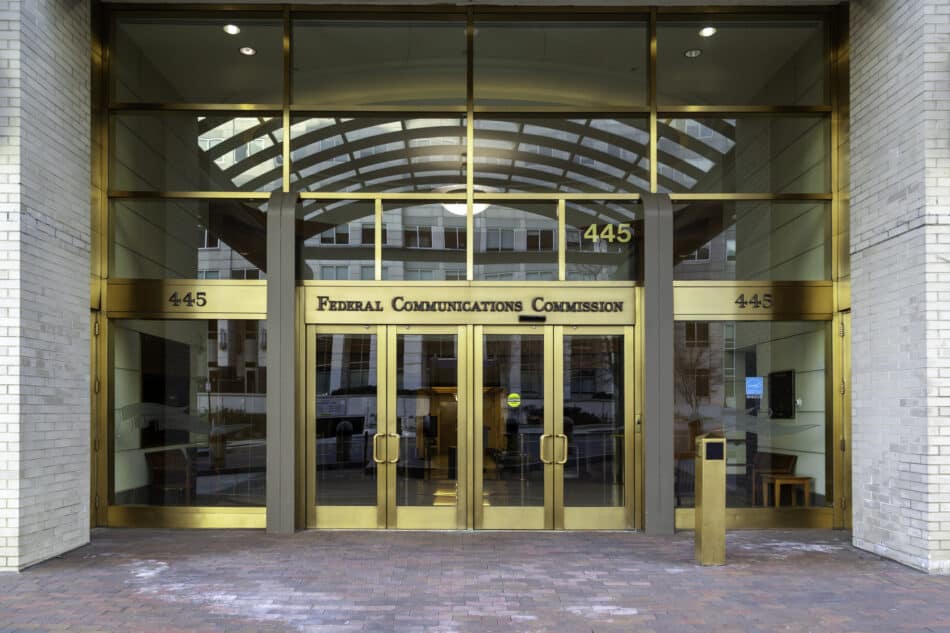
The Federal Communications Commission is set for an April 25 vote to bring back “net neutrality,” aiming to reinstate a national regulatory framework for broadband internet services, Fox Business reports. The NAM is speaking out against it.
What is it: “The Biden administration’s rule would regulate broadband services as an essential resource under Title II of the Communications Act.’’
How did we get here: “In 2015, the FCC adopted the Obama administration’s [net] neutrality rules, known as the Open Internet Order. The rules survived a legal challenge with a favorable ruling by a federal appeals court in 2016.”
- In 2017, the Trump administration rolled back broadband regulation with a regulation known as the Restoring Internet Freedom rule, citing it as an impediment to innovation and investment by internet service providers. This decision held up against a legal challenge.
- By 2021, President Biden’s executive order suggested reviving Obama-era broadband rules. With Democrats leading the FCC by October 2023, a formal process began, setting the stage for a conclusive vote.
What would happen next: The NAM sent detailed feedback to the FCC last December, warning that reinstating broadband regulation “will lead to a slowdown in innovation and investment.”
- The NAM’s feedback pointed to the negative impact of the Obama administration’s previous attempt to implement the policy: “In 2015, the last time the FCC sought to regulate broadband under Title II, annual industry capex fell by half a billion dollars.”
- The FCC’s decision exceeds its authority and could also be subject to litigation: “Congress has not explicitly given the commission the authority to regulate broadband and reclassify it in this way; therefore, the FCC lacks authority to do so.”
Our take: “As with the other elements of the regulatory onslaught out of Washington these past few years, this is yet another solution in search of a problem, because we already have an open and fair internet,” said NAM Senior Director of Technology Policy Franck Journoud. “As we’ve warned, this will regulate broadband as if it were the same as rotary telephone service, which would slow innovation. The commission really is doing nothing to answer the question of ‘why’ this policy should be brought back.”
- The NAM has long opposed broadband regulation and went to court to support the FCC’s 2017 decision to repeal the rule. As NAM Chief Legal Officer Linda Kelly said, “Internet-driven technology is at the heart of modern manufacturing, and the FCC’s decision to repeal the onerous 2015 net neutrality rule was a victory for the competitiveness of manufacturers in America.”
The NAM will closely follow the FCC’s latest vote on net neutrality and is prepared to oppose any decision to restore this outdated policy.
TSMC to Receive Up to $6.6 Billion in CHIPS Funding

The Biden administration on Monday announced that TSMC’s Arizona subsidiary will receive up to $6.6 billion in grants from the 2022 CHIPS and Science Act, The New York Times reports. The announcement is the latest move by the Biden administration to make the United States a leading producer of cutting-edge semiconductor technology.
What’s going on: The funding “will help support the construction of TSMC’s first major U.S. hub, in Phoenix. The company has already committed to building two plants at the site and will use some of the grant money to build a third factory in Phoenix, U.S. officials said on Sunday.”
- The company will “increase its total investments in the United States to more than $65 billion, up from $40 billion.”
- “TSMC’s investment is expected to create about 6,000 direct manufacturing jobs and more than 20,000 construction jobs, federal officials said.”
- In addition to the grants, the federal government is also offering TSMC up to $5 billion in loans.
Impact on U.S. chip production: “With projects such as TSMC’s, the U.S. is on track to make about 20% of the world’s cutting-edge chips by 2030, the Commerce Department said. It called the project the largest foreign direct investment in a new project in U.S. history,” reports The Wall Street Journal (subscription).
- Earlier this year, the Biden administration announced major chips funding awards for Intel and GlobalFoundries.
The NAM’s reaction: “Today’s announcement from TSMC and @CommerceGov makes America stronger,” the NAM wrote in a social post Monday. “The NAM-championed CHIPS and Science Act continues to spur new investments in cutting-edge semiconductor technology that is essential to advancing U.S. economic competitiveness.”
U.S. and European Union Strengthen Transatlantic Trade Ties
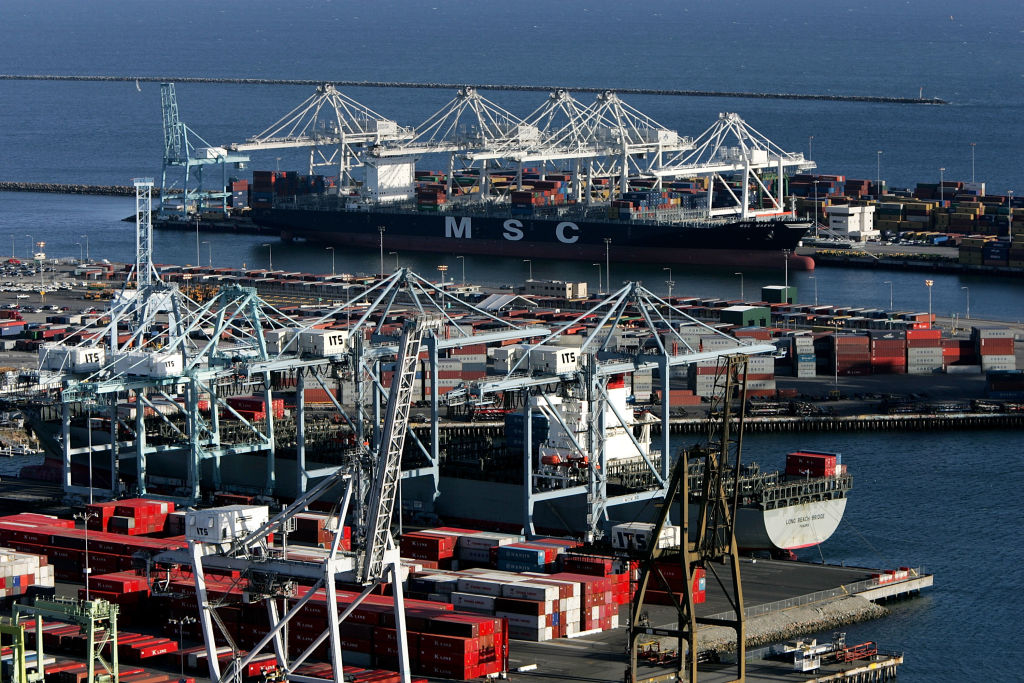
The sixth ministerial of the United States–European Union Trade and Technology Council, held in Leuven, Belgium, emphasized the deepening cooperation between the U.S. and the EU in navigating global economic pressures and technological advancements.
What’s going on: Secretary of State Antony Blinken, joined by Secretary of Commerce Gina Raimondo and U.S. Trade Representative Katherine Tai, joined European Commission leaders in a discussion that centered on fostering economic security, the importance of AI governance, cooperation on secure supply chains and a transatlantic commitment to reducing reliance on high-risk suppliers.
- This collaboration, Secretary Blinken said in remarks to the press at the council’s outset, proved that there has been “increasing alignment” between the United States and the European Union on these and other issues in recent years.
- “Together, we represent almost half of world GDP, and that means that there’s a certain weight that comes with having a shared position on something,” Secretary Blinken said. “And whether that’s dealing with China or any other challenge, it makes a big difference.”
Growing collaboration in AI: The meeting additionally underscored unwavering support for Ukraine from the U.S. and the EU amid geopolitical challenges, as well as a commitment to driving innovation and security in technology and trade.
- One tangible outcome of the TTC was an update of the “Terminology and Taxonomy for Artificial Intelligence” (i.e., of the definitions of key terms used by the EU and U.S. when discussing AI). This underpins the workstream of the TTC to “ensure the safe, secure and trustworthy development and use of AI,” according to the U.S.–EU joint statement.
Shared concerns about Chinese semiconductors: Competition from heavily subsidized chips produced in China was a key focus at the ministerial, particularly in light of the anticipated ramping up of “legacy chips” manufactured in China over the next few years. The Chinese government’s significant financial subsidization of the chip-producing sector, Secretary Raimondo warned, could lead to considerable market imbalances between China and the U.S. and EU.
- Both the U.S. and EU pledged to continue working together to address destabilizing Chinese exports of semiconductors in the coming years, including to collect and share nonconfidential information and market intelligence about nonmarket policies and practices, to consult each other on planned actions and to potentially develop joint or cooperative measures to address distortionary effects on the global supply chain for legacy semiconductors.
Final Heavy-Duty Tailpipe Rule Presents Challenges

The Environmental Protection Agency’s new heavy-duty tailpipe emissions rule is unrealistic and unfeasible, the NAM said Friday.
What’s going on: “The rule—proposed in April 2023—is part of the ‘Clean Trucks Plan’ unveiled in 2023, which includes light-duty tailpipe and nitrogen oxide rules,” Bloomberg Law (subscription) reports.
- “The[se] ‘Phase 3’ standards build on previous phases of a broader regulatory program to stem greenhouse gas emissions from vehicles such as delivery trucks, long-haulers, and buses.”
- The Phase 1 rule was finalized in 2011, and the Phase 2 rule in 2016.
Why it’s problematic: While the new regulation grants automakers more time for implementation than previous versions did—thanks to input from manufacturers and their advocates, including the NAM—it still “fails to reconcile with the realities of current U.S. infrastructure,” according to an NAM social post.
- “Critical permitting reforms to strengthen transmission systems and a technology-neutral approach for manufacturers are essential to reaching U.S. climate goals,” the NAM wrote.
What should be done: Congress must reform the broken U.S. permitting system so we can build the electric vehicle charging station infrastructure required to implement a rule of this magnitude, the NAM said earlier this month.
NAM: OSHA “Walkaround” Rule an Example of Regulatory Onslaught
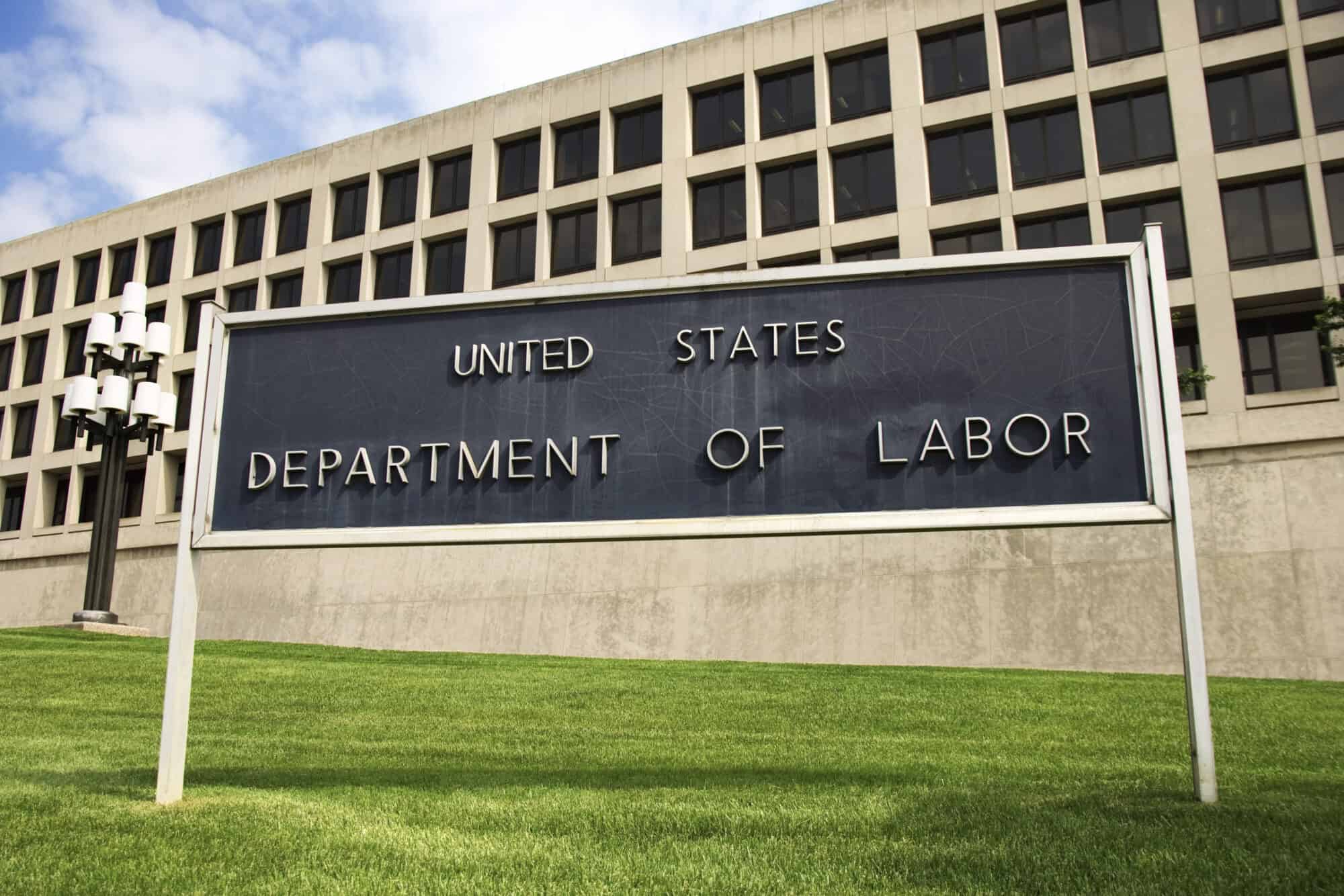
The U.S. Occupational Safety and Health Administration’s newly finalized “walkaround rule” is unlawful and will not further the agency’s mission of ensuring safe working conditions, the NAM said after the rule’s release.
What’s going on: The long-awaited final rule, which goes into effect May 31, states that “workers may authorize another employee to serve as their representative or select a non-employee,” according to the Department of Labor.
- The policy broadens the basis upon which a non-employee representative may be deemed “reasonably necessary to the conduct of an effective and thorough inspection.”
Why it’s problematic: In addition to having little to do with making workplaces safer, the new policy violates OSHA’s own mandate—and, quite possibly, manufacturers’ constitutional rights, the NAM said.
- The “rule does nothing to advance OSHA’s mission of ensuring safe working conditions,” said NAM Chief Legal Officer Linda Kelly. “Forcing businesses to accommodate third parties with no safety expertise in their facilities infringes on employers’ property rights, invites new liabilities and introduces elements of chaos and disruption to safety inspections. … [It also] clearly violates OSHA’s statutory mandate to conduct inspections within ‘reasonable limits and in a reasonable manner’ with ‘minimum burden’ on employers, and potentially violates manufacturers’ constitutional rights.”
Next steps: The NAM is weighing legal action to reverse the final rule.
Manufacturers: Walkaround Rule Exceeds OSHA’s Authority
Washington, D.C.: Following the release of the Occupational Safety and Health Administration’s recent rulemaking on the Worker Walkaround Representative Designation Process, National Association of Manufacturers Chief Legal Officer Linda Kelly released the following statement:
“Today’s rule does nothing to advance OSHA’s mission of ensuring safe working conditions. Forcing businesses to accommodate third parties with no safety expertise in their facilities infringes on employers’ property rights, invites new liabilities and introduces elements of chaos and disruption to safety inspections.
“By unlawfully expanding third-party access to manufacturers’ worksites, this proposal clearly violates OSHA’s statutory mandate to conduct inspections within ‘reasonable limits and in a reasonable manner’ with ‘minimum burden’ on employers, and potentially violates manufacturers’ constitutional rights. And, for the first time, OSHA would determine who qualifies as an ‘authorized representative’ of employees, which until now has been exclusively recognized as the jurisdiction of the National Labor Relations Board.
“This is another clear example of the federal regulatory onslaught—a proposal that upends settled precedent and ignores the reasoned decision-making required by the Administrative Procedure Act. For these reasons, the NAM will be considering legal action to reverse this incredibly destabilizing decision.”
-NAM-
The National Association of Manufacturers is the largest manufacturing association in the United States, representing small and large manufacturers in every industrial sector and in all 50 states. Manufacturing employs nearly 13 million men and women, contributes $2.85 trillion to the U.S. economy annually and accounts for 53% of private-sector research and development. The NAM is the powerful voice of the manufacturing community and the leading advocate for a policy agenda that helps manufacturers compete in the global economy and create jobs across the United States. For more information about the NAM or to follow us on Twitter and Facebook, please visit www.nam.org.
Medicare Plans to Start Covering Weight-Loss Drugs

Three of the country’s largest health insurers will soon begin paying for a top weight-loss drug for certain people on Medicare with heart-related conditions, The Wall Street Journal (subscription) reports.
What’s going on: “CVS Health, Elevance Health and Kaiser Permanente said they would cover Novo Nordisk’s Wegovy for the use of reducing the risk of heart attacks and strokes in people who have cardiovascular disease, meet body-weight criteria and are covered by a Medicare drug-benefit plan.”
- The class of weight loss drugs to which Wegovy belongs was previously excluded from Medicare coverage by a U.S. law.
Why it’s important: “The decisions will ease the financial burden” of those who have been paying out of pocket for Wegovy and are likely to spur use of the drug among those who couldn’t afford or did not want to pay the full price.
- Approximately two-thirds of U.S. adults are overweight or obese, according to the recent NAM report, “Manufacturers on the Front Lines of Communities: A Deep Commitment to Health Care.”
- Excess body weight and obesity are associated with higher health-care costs for both employers and their workers. They also “raise the likelihood of other illnesses” and affect “productivity and the ability to complete job functions,” according to the study, which points to weight-loss drugs as part of the solution.
Why it happened: New guidance released last week by the Centers for Medicare and Medicaid Services holds that Medicare Part D plans, administered by private insurance companies, could “cover anti-obesity medications if the drugs receive approval for an additional use that is considered medically accepted.”
- This applies to Wegovy, which the Food and Drug Administration recently approved for reducing the risk of heart attacks and strokes among those with histories of heart disease and body mass indices above a certain threshold.
However … The use of Wegovy “for weight loss alone” will remain excluded from coverage under the CMS guidance.
New NAM Ad: Senate Must Pass Tax Bill Now
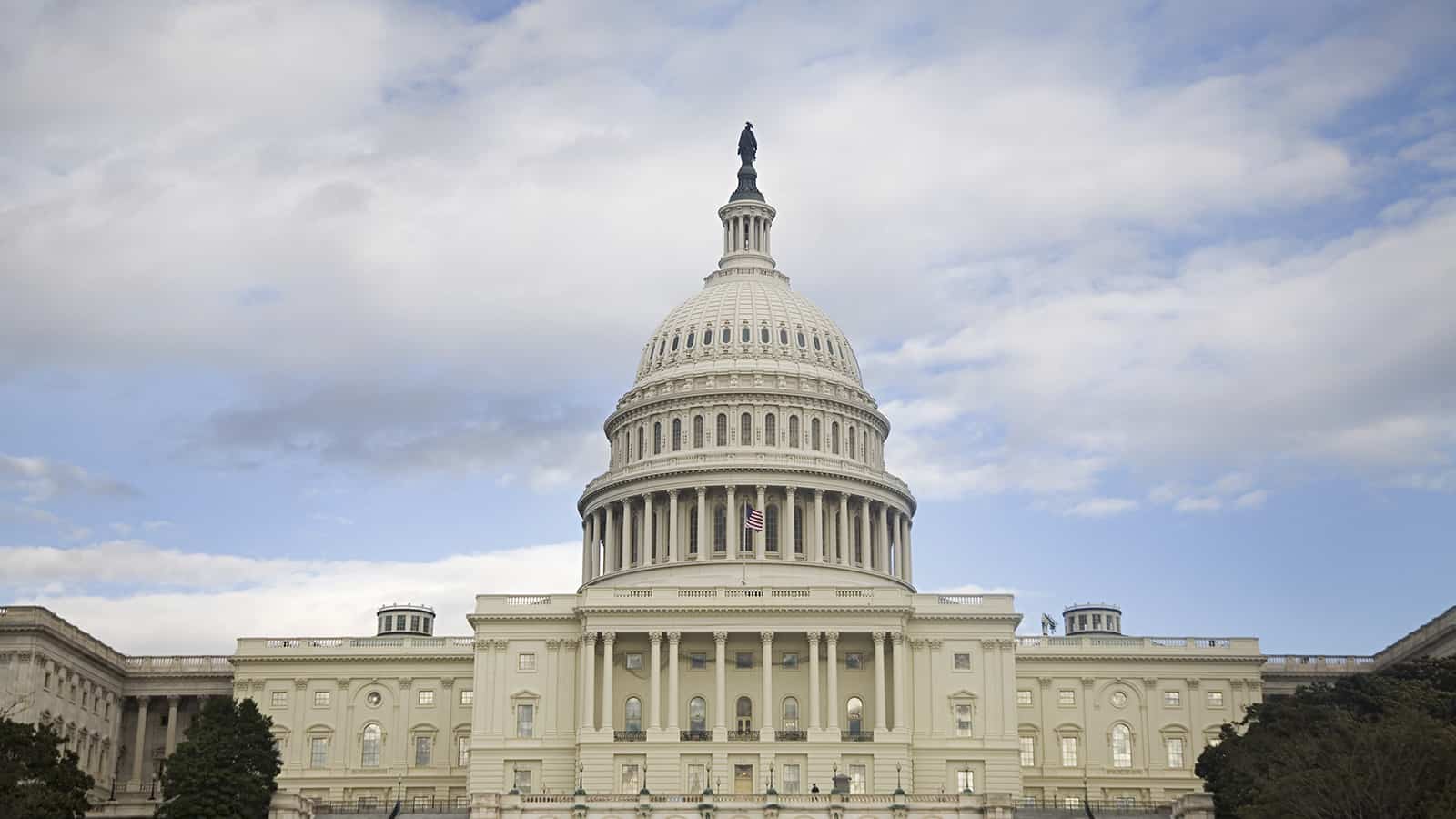
Earlier this year, the House passed legislation including key NAM tax priorities. Now it’s time for the Senate to do the same.
That’s the message of a new NAM digital ad campaign launched today and set to run over the next several weeks.
What’s going on: The 30-second TV ad—which will stream in Washington, D.C., and in the key states of Idaho, Kentucky, Louisiana, Oklahoma, New York and New Hampshire—asks viewers to urge the Senate to pass the Tax Relief for American Families and Workers Act, which cleared the House by a bipartisan vote in January.
- The legislation restores three key pro-growth tax provisions from the 2017 Tax Cuts and Jobs Act that expired in 2022: immediate expensing for domestic R&D, enhanced interest deductibility and full expensing.
The background: Earlier this month, Courtney Silver, president and owner of Ketchie and chair of the NAM Small and Medium Manufacturers Group, told the Senate Finance Committee about the impact the three provisions’ expiration has had on her family-owned precision machining company.
- “In the years following the TCJA, I was able to make a higher level of investment because I knew our tax code was going to have a baseline of certainty,” she said. “Today, however, I am unable to make these investments because of the uncertainty that Congress will address the expired TCJA provisions. . . . Because I am unable to realize the full deduction of my investment within the year I purchase it, the investment seems too risky and irresponsible.”
What’s needed: Senate Majority Leader Chuck Schumer (D-NY) has taken an early procedural step to put the House-passed legislation on the Senate’s calendar. But more needs to happen, and soon, the NAM’s ad tells viewers.
- “Vital tax provisions are expiring, harming our ability to compete globally and invest in new factories and equipment,” the ad says. “The House has done its job and restored these provisions with overwhelming support. The Senate needs to act now.”
